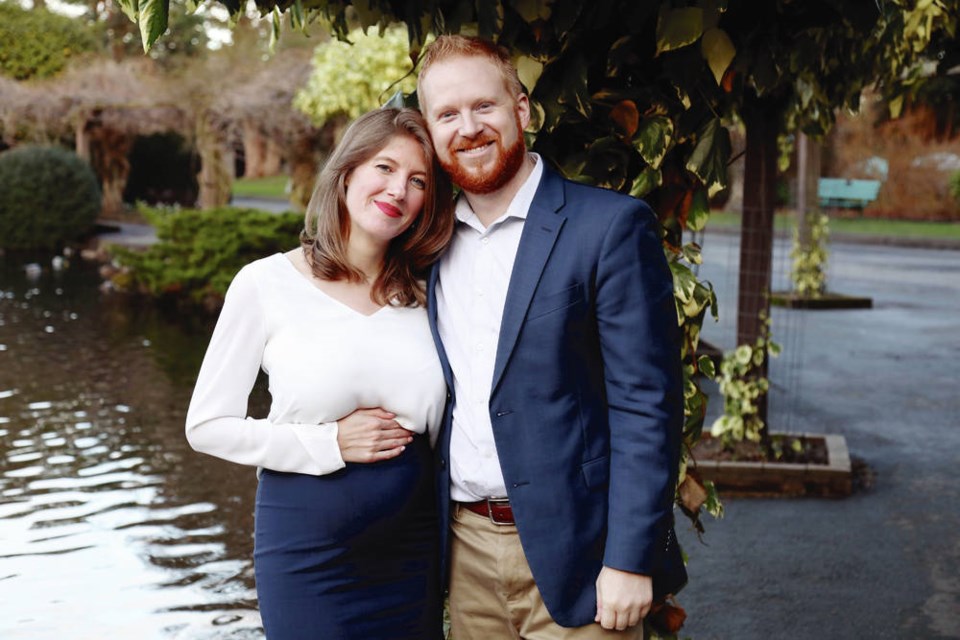With speculation mounting that the minority Liberal government will call a federal election this spring, Victoria’s NDP MP Laurel Collins will either be campaigning while nine months pregnant or with an infant in tow.
The first-term MP and former Victoria councillor is 26 weeks pregnant and she and her partner James McNish are expecting their first child at the end of April.
Once the baby is born, McNish, who works for the provincial government, will take full parental leave and travel with Collins, 36, to Ottawa when the House of Commons is sitting. Going into her third trimester, Collins will continue to vote and debate bills virtually while preparing for the possibility that Prime Minister Justin Trudeau will call an election while the Liberals are enjoying a comfortable lead in public opinion polls.
“There’s been a ton of rumours around the possibility of the government forcing a spring election,” Collins said. “If it happens that I’m eight or nine months pregnant during the spring election, I am definitely going to be out there campaigning.”
The federal New Democrats are expected to nominate Collins this Saturday as the party’s candidate for the Victoria riding.
Collins said she admires leaders like New Zealand Prime Minister Jacinda Ardern who in 2018 gave birth while serving as an elected head of government.
“There’s no reason why women who are starting a family should face barriers from pursuing really challenging and meaningful roles — whether it’s in politics or in business or whatever area they want to pursue,” Collins said.
She said the economic impact of the COVID-19 pandemic has disproportionately hit women.
More than 20,000 women left the workforce between February and October while about 68,000 men joined it, according to a November report by the Royal Bank of Canada. The report found that many women left the workforce to care for children during the pandemic while men picked up jobs in the science, technology, engineering and math sectors.
“It means we have lost a lot of ground that we gained and fought for to make sure women who want to re-enter the workforce after having a child can do so,” Collins said.
This is why Collins and NDP Leader Jagmeet Singh are calling on the Liberal government to commit to $10 billion over the next four years to provide a universal and affordable child care plan.
”I’ve definitely been disappointed by the lack of ambition and leadership from the federal government on this,” Collins said.
Collins said while many Canadian women politicians have broken ground in making politics more family-friendly, barriers still exist which could explain why just 26 per cent of federal MPs are women.
In 2019, the House of Commons unanimously passed new rules that allow members of parliament who are expecting a child to take up to 12 months of parental leave. Before that, MPs — who are not provided parental leave because they don’t pay into Employment Insurance — had to work out case-by-case leave agreements with their parties.
Liberal MP Karina Gould, then democratic institutions minister, breastfed her three-month-old son during question period in the House of Commons in June 2018. She was the first federal cabinet minister to give birth and take maternity leave while in office.
In October 2018, Michelle Mungall, who was the B.C. NDP’s energy minister at the time, brought her three-month-old son Zavier into the B.C. legislature chamber following a rule change to allow babies, from newborn to two-years-old, onto the floor while in the care of a parent.
British Columbia, Alberta and, as of September 2020, Newfoundland and Labrador are the only provincial legislatures in Canada that allow children in the chamber when the house is sitting.
“We want to be advocating for a future where women are not the assumed sole caregiver,” Collins said.
“Women should never be forced to choose between having a family and having a career.”
kderosa@timescolonist.com
